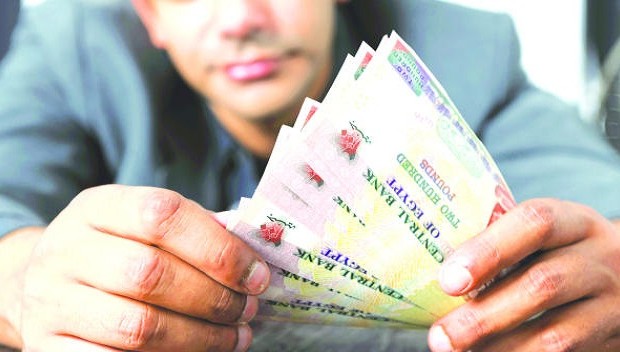Cairo, Asharq Al-Awsat—Egyptian investment minister Yahya Hamed said growth in his country is expected to reach 2.2% this financial year, adding that the reason for the low growth rate is the drop in investment caused by the political unrest over the past two and half years.
At a news conference held yesterday, Hamed said this year’s budget deficit was expected to reach USD 31.4 billion, 11% higher than the GDP, adding that the reason for this is the energy subsidy which could reach USD 21.4 billion by the end of this year.
The Egyptian government is seeking to rationalize energy subsidies to the public, and has started applying a smart card system to distribute fuel for motor vehicles, which will be introduced in three phases. The government is seeking to end fuel smuggling, and is also planning to lift energy subsidies to industry within four years. The minister said this will save the country approximately USD 5 billion.
Hamed added that the government had aimed to raise growth figures for the next financial year, which starts in July, to between 3.5% and 4% by attracting investment, which had reached low levels in the past two years.
He attributed the low levels of growth to a drop in investments, especially foreign investment, which were expected to reach USD 400 million by the end of the current year.
According to Egyptian Central Bank figures, the net value of direct foreign investment in Egypt during the first half of the current financial year was USD 301.4 million. The figures for the two previous financial years were USD 2 billion for each year.
The minister said Egypt hoped to attract investment from major countries like China and Brazil, adding that the government was introducing incentives to encourage investors to come to Egypt.
He also said Egypt is trying to resolve problems faced by businessmen and investors, emphasizing that there are four new draft laws that aim to resolve outstanding issues. He added that the government had helped resolve problems related to investment worth over USD 1.2 billion this year.
Hamed also said there were plans for supporting small and medium-sized businesses by increasing the “Start-up Fund,” which helps these businesses, from around USD 20 million to around USD 70 million, and to introduce new laws to make it easier to license small businesses.
Egypt is relying on receiving a loan of USD 700 million from the International Monetary Fund to show that the Egyptian market’s performance is positive, and increase investors’ confidence in Egyptian economy.

